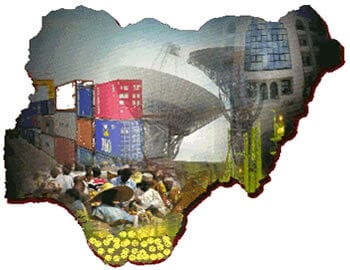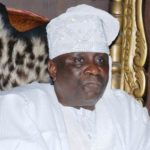Forbes, the popular American business magazine, has ranked Nigeria in the 110th position among Best Countries for Busines in the world out of 161 graded countries.
The United States was ranked 17th below Ireland and Finland, while top on the list is the United Kingdom (1), followed by Sweden (2), Hong Kong (3), The Netherlands (4), New Zealand (5) and Canada (6).
In the African region, South Africa came first in Africa, while Nigeria is in the 14th position, but on the global scale, South Africa ranks 59.
Other countries rated in Africa include Morocco (62), Seychelles (66), Tunisia (82), Botswana (83), Rwanda (90), Kenya (93), Ghana (94), Egypt (95), Namibia (96), Senegal (100), Zambia (103) and Cape Verde (104).
On the criteria used for the ranking, Forbes said: “We used the World Bank’s Doing Business report to grade countries’ taxes, investor protection and red tape/bureaucracy,” Forbes said, explaining its methodology.
“The Heritage Foundation’s Index of Economic Freedom provided the basis for our ratings on trade freedom and monetary freedom. Ratings on technology, innovation and infrastructure came compliments of the World Economic Forum’s annual Global Competitiveness Report.
“We used the Property Rights Alliance’s International Property Rights Index to gauge property rights, which was led by Japan. The workforce was based on the size of the labour force and its growth from data via the World Bank.
“Quality-of-life ratings came courtesy of the United Nations’ Human Development Index.”
Nigeria’s assessment was also based on its 203.5 million population with a Gross Domestic Product (GDP) growth of 0.8 per cent and GDP per capita of $2,000.
However, this year’s ranking seems a leap forward for Nigeria compared with last year when the country ranked 115 out of 153 assessed countries, then with a GDP growth of 1.6 per cent and GDP per capita given as $2,200.
In Nigeria’s profile published by Forbes, the magazine said: “Nigeria is Sub Saharan Africa’s largest economy and relies heavily on oil as its main source of foreign exchange earnings and government revenues.
“Following the 2008-09 global financial crises, the banking sector was effectively recapitalised and regulation enhanced. Since then, Nigeria’s economic growth has been driven by growth in agriculture, telecommunications, and services.
“Economic diversification and strong growth have not translated into a significant decline in poverty levels; over 62 per cent of Nigeria’s over 180 million people still live in extreme poverty.
“Despite its strong fundamentals, oil-rich Nigeria has been hobbled by inadequate power supply, lack of infrastructure, delays in the passage of legislative reforms, an inefficient property registration system, restrictive trade policies, an inconsistent regulatory environment, a slow and ineffective judicial system, unreliable dispute resolution mechanisms, insecurity, and pervasive corruption.
“Regulatory constraints and security risks have limited new investment in oil and natural gas, and Nigeria’s oil production had been contracting every year since 2012 until a slight rebound in 2017.
“President Buhari, elected in March 2015, has established a cabinet of economic ministers that includes several technocrats, and he has announced plans to increase transparency, diversify the economy away from oil, and improve fiscal management, but has taken a primarily protectionist approach that favours domestic producers at the expense of consumers.
“President Buhari ran on an anti-corruption platform, and has made some headway in alleviating corruption, such as the implementation of a Treasury Single Account that allows the government to better manage its resources and a more transparent government payroll and personnel system that eliminated duplicate and ‘ghost workers.'”
“The government also is working to develop stronger public-private partnerships for roads, agriculture, and power.
“Nigeria entered recession in 2016 as a result of lower oil prices and production, exacerbated by militant attacks on oil and gas infrastructure in the Niger Delta region, coupled with detrimental economic policies, including foreign exchange restrictions.
“GDP growth turned positive in 2017 as oil prices recovered and output stabilised.”






